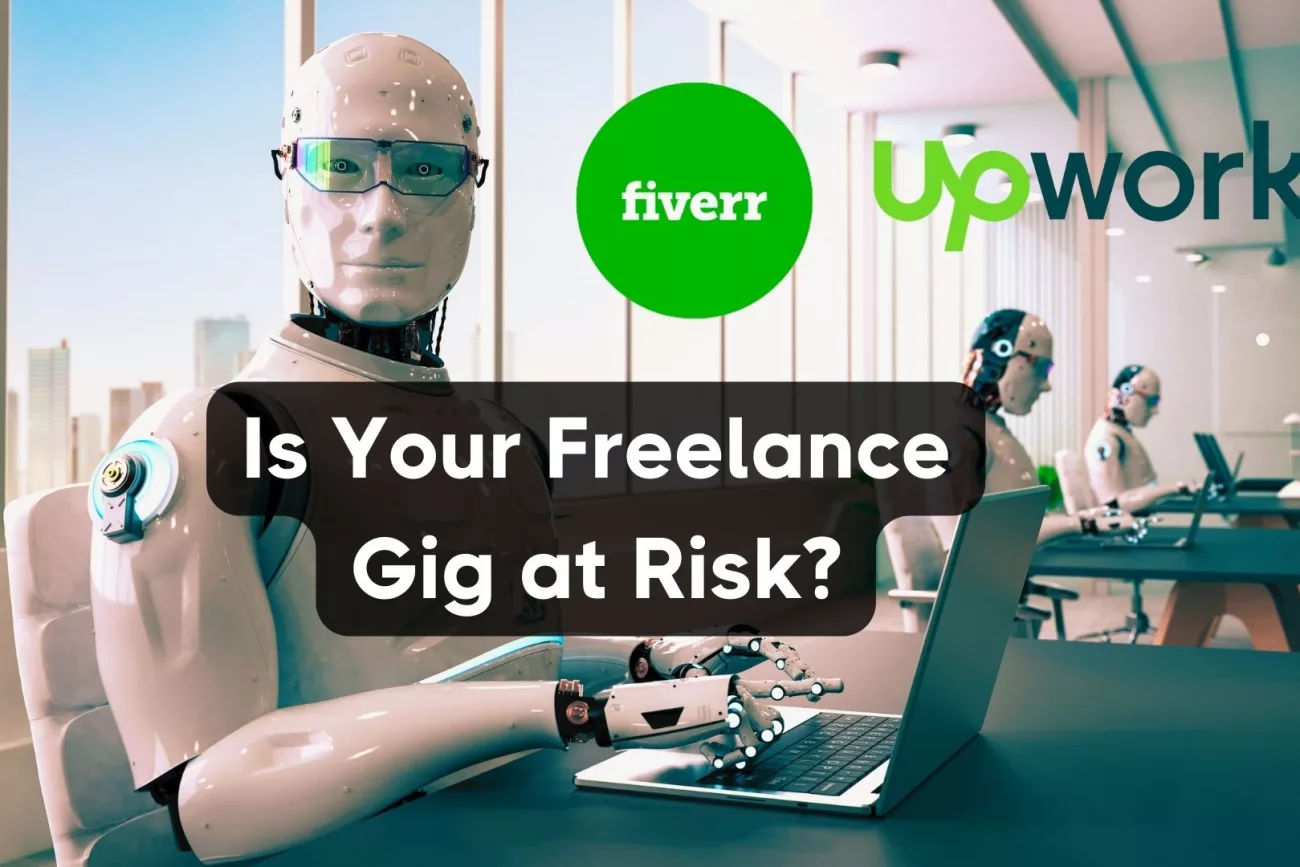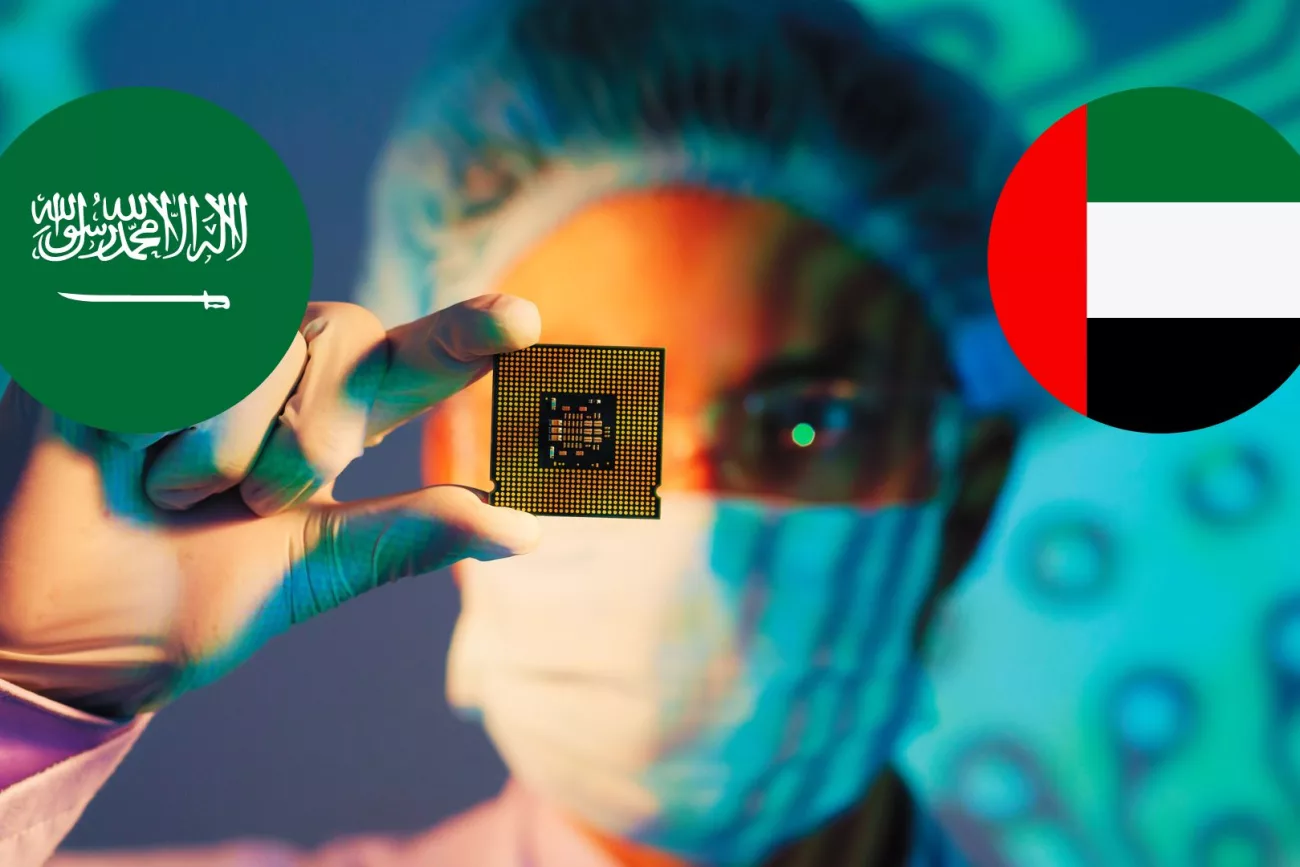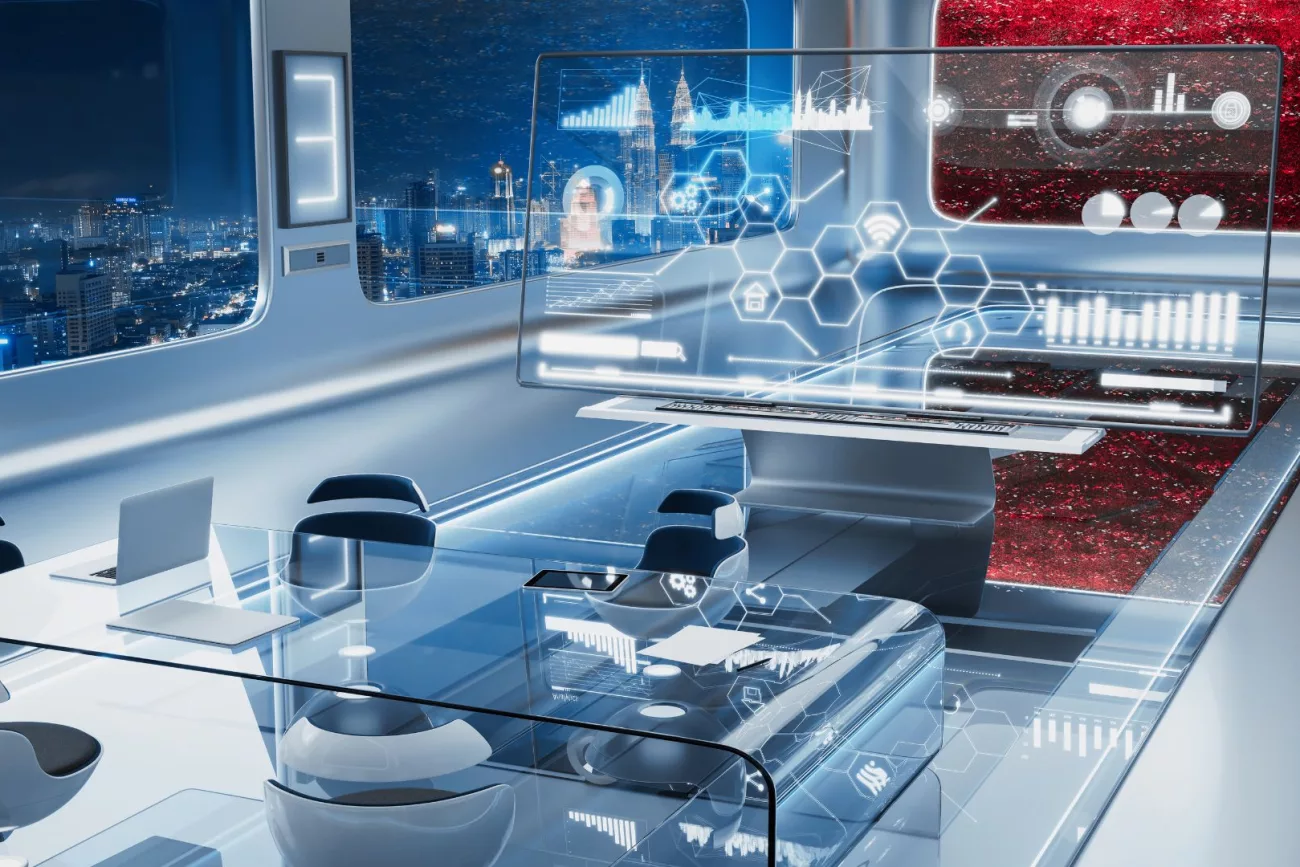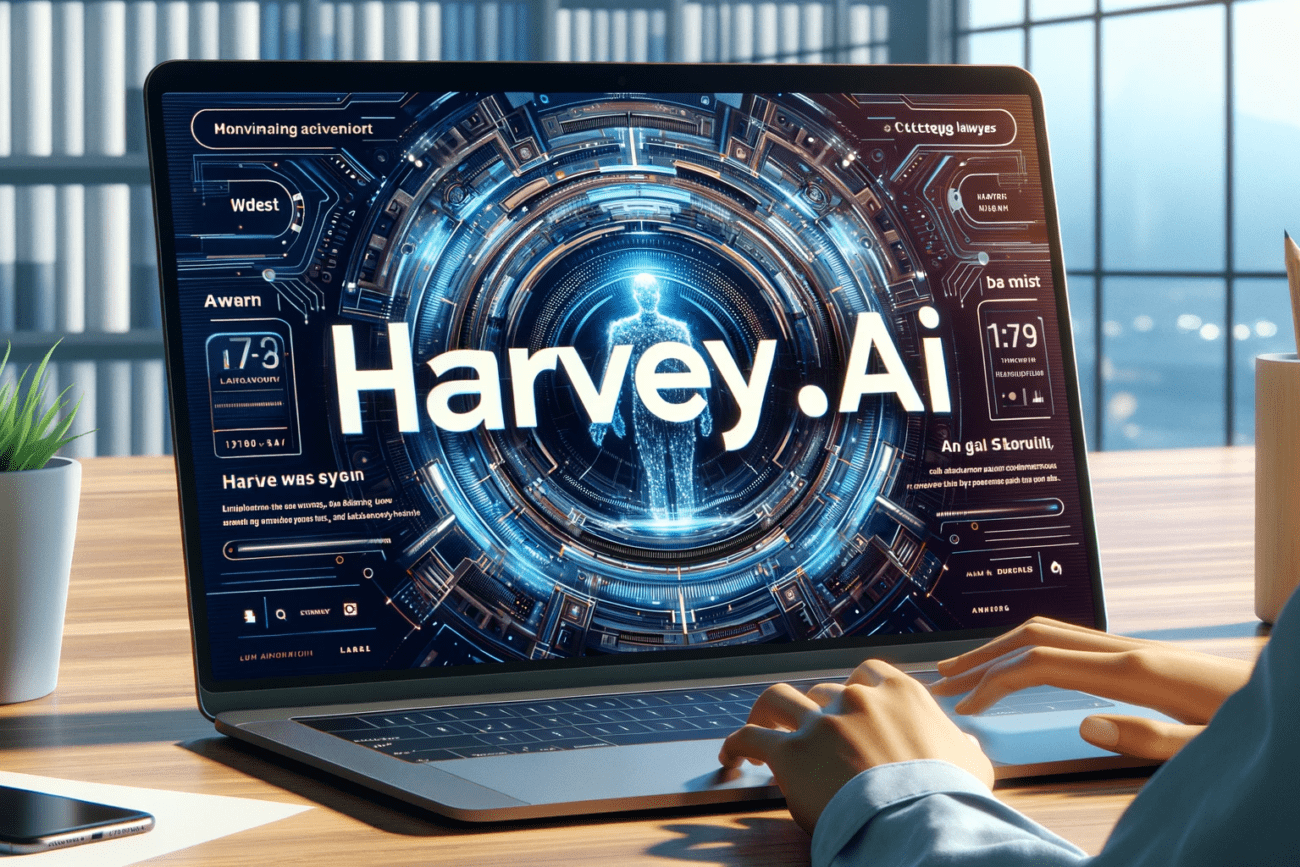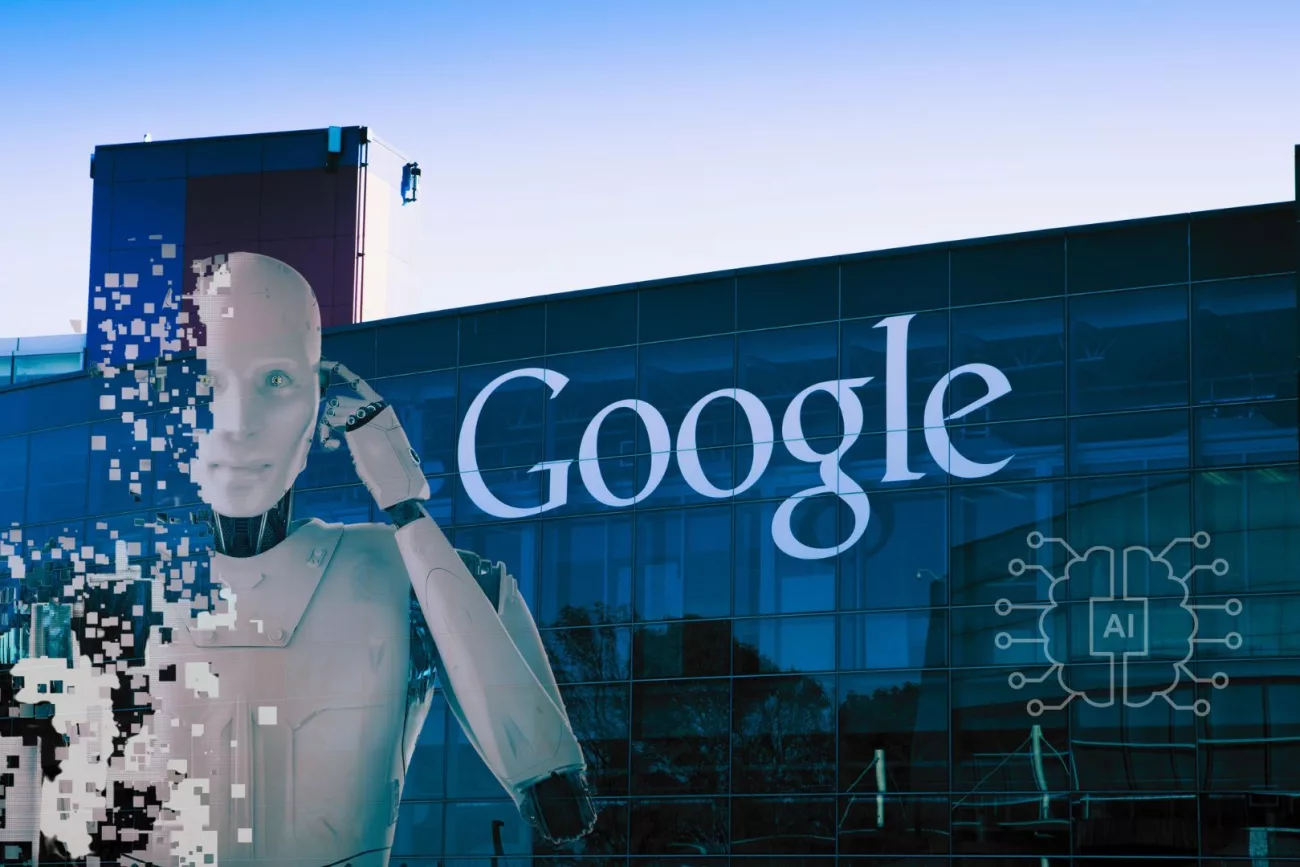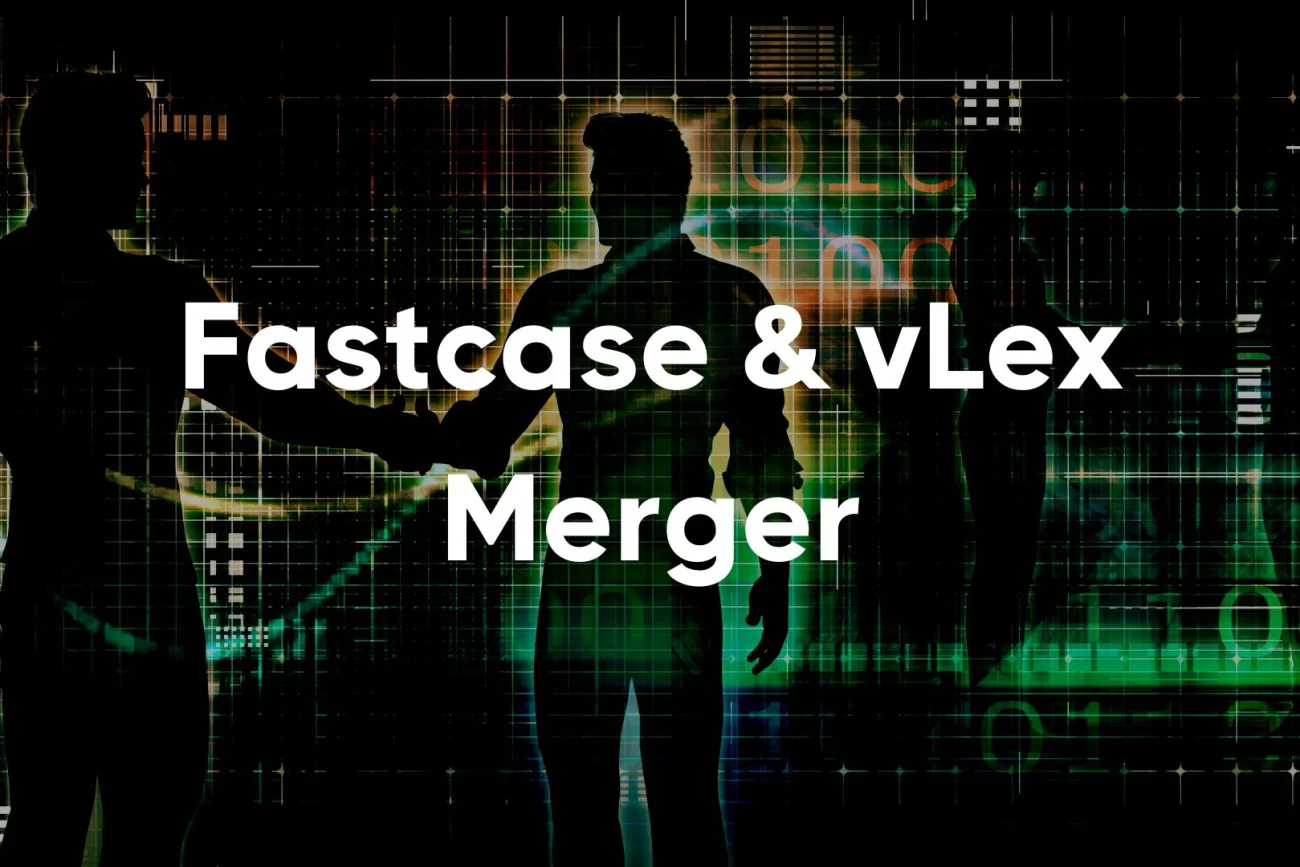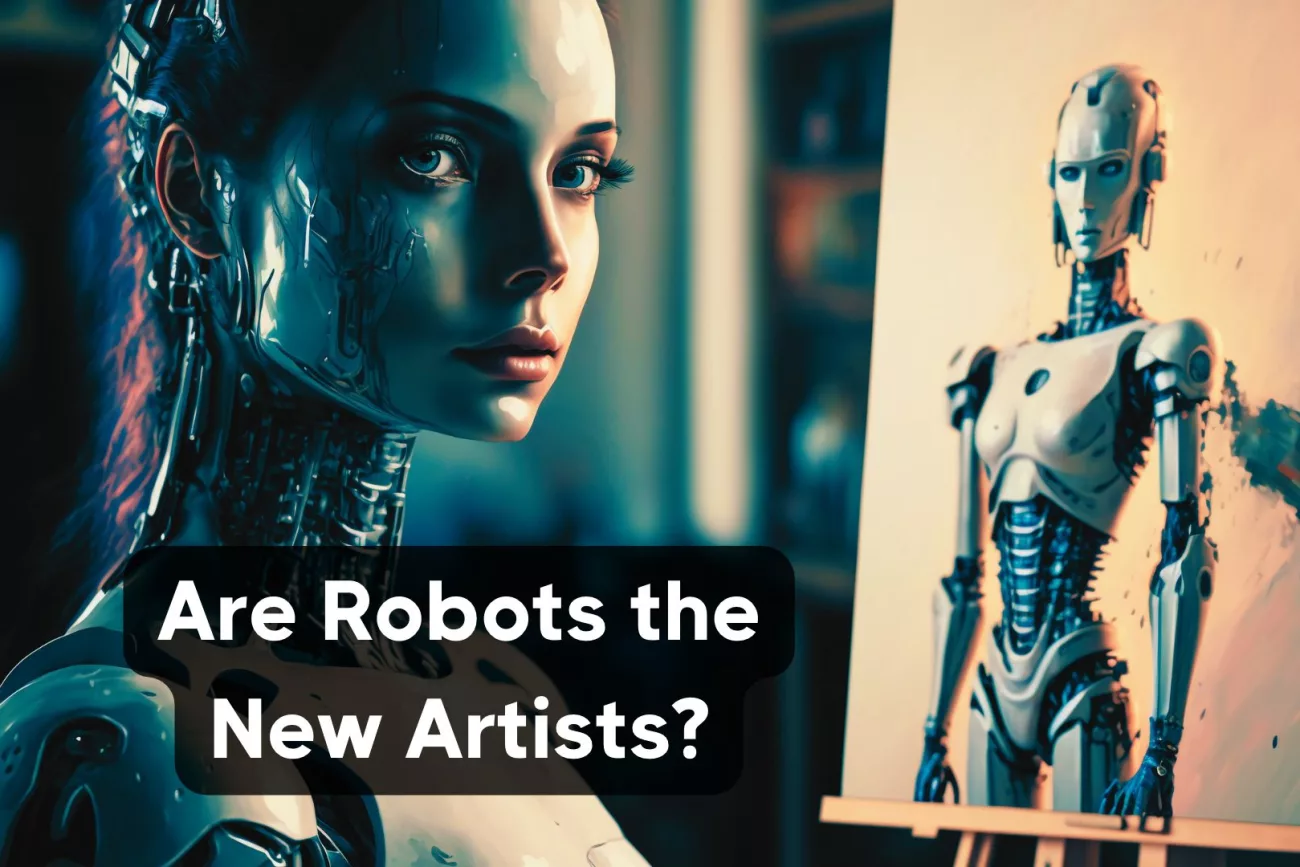
Key Points:
- AI’s role in the art world is growing, leading to debates about its impact on creativity and the definition of an artist.
- AI has been used to create impressive artworks, but this has sparked controversy about whether it enhances or diminishes the art world.
- The question of who owns the intellectual property rights to AI-created art is complex and unresolved.
- Predictions about AI’s future in art are varied, with some suggesting a potential art world dominated by AI and the possible extinction of the human artist.
The Intersection of AI and Art 🚀🎭
The world of art, a realm once solely dominated by human creativity, is now witnessing an unprecedented invasion – the rise of Artificial Intelligence (AI). This invasion, however, is not one of destruction, but of creation. AI, with its ability to learn and mimic human intelligence, has found a new canvas to express itself – the art world. But this new form of expression is not without its controversies.
The AI Art Boom 🎨🤖
Artificial Intelligence has been around for years, but AI-generated artwork has really taken off recently. With its growing presence and its rise in implementation, AI has proven to be a powerful yet controversial tool in the art world. Its use leads many to ask several questions: Is it art? Is it cheating? And who does the credit go to? There’s no doubt that AI is becoming increasingly more prevalent in the art world and beyond. These algorithmic concoctions are doing everything from winning art competitions to being the focus of exhibitions in distinguished museums like the MoMA. In an ever-changing world where technology is rapidly progressing and digital means are major vehicles for art, it makes sense that new ways of digital creation are formed. Whether the ethical implications are good or bad, AI-generated artwork is here and it’s on the rise. Read more about the rise of AI in art here.
The Controversy: Redefining Art or Cheating? 🤔💥
However, this efficiency comes with a controversial question: Are we sacrificing the value of human creativity for the sake of speed and convenience? As per a report by the American Bar Association, AI has significant potential benefits to the law. It can increase attorney productivity and avoid costly mistakes. But, is this efficiency overshadowing the nuanced understanding and judgement that a human legal expert brings to the table?
This is a question we must all ponder. Join the conversation on LinkedIn using the hashtag #AIinArt. Let’s delve deeper into this controversial issue and decide: Is the rise of AI in art a step forward or a dangerous leap into uncharted territory?
Your Thoughts Matter: Join the Debate! 💭🔥
We invite you to join this heated debate. What are your thoughts on AI’s role in the art world? Do you see it as a tool for enhancing creativity, or do you believe it’s undermining the value of human artistry? Share your thoughts on LinkedIn using the hashtag #AIinArt. Let’s keep this conversation going!
AI-Generated Art: A New Frontier or a Threat to Creativity? 🖼️🤔
The world of art, once a realm solely dominated by human creativity, is now witnessing an unprecedented invasion by artificial intelligence. AI’s foray into artistry is not just a technological marvel but a controversial topic that has sparked heated debates across the globe.
AI in Art: A Technological Revolution
AI’s role in art creation is expanding at an astonishing pace. Image-generators like Dall-E 2, developed by AI research company OpenAI, can produce pictures on any theme within seconds, as reported by The Guardian. From creating a Kermit the Frog in the style of Edvard Munch to a Gollum feasting on a slice of watermelon, these AI tools can generate startlingly accurate depictions.
The Controversy: Creativity or Mimicry?
While the internet revels in the meme-making opportunities provided by AI, some creatives are alarmed. The main concern is the future of creative human industries. AI’s ability to mimic artistic styles has led to accusations of theft of artistic trademark. For instance, concept artist Greg Rutkowski, known for his epic fantasy scenes, has seen his style replicated in hundreds of thousands of AI-generated images.
The Ethical Question: Is AI Undermining Human Creativity?
The rise of AI in art raises a crucial ethical question: Is AI enhancing the art world or is it undermining human creativity? AI’s ability to create art that closely resembles the training data but isn’t identical has led to the creation of entirely novel pieces of art. However, this has also sparked fears of a future where the internet is flooded with AI art, making it difficult for human artists to find their work.
The Debate Continues: #AIinArt
The debate on AI’s role in art is far from over. As AI continues to evolve and create more sophisticated art, the controversy is only set to intensify. We invite you to join this crucial debate. Do you believe AI is enhancing the art world or is it diminishing human creativity? Share your thoughts on LinkedIn using the hashtag #AIinArt.
Remember, the future of art could very well be in the hands of AI. But is this a future we are ready to embrace? Only time, and your engagement, will tell.
Intellectual Property and AI: Who Owns AI-Created Art? 📜🤷♀️
The advent of AI in the creative industry has sparked a heated debate over the ownership of AI-created art and the implications for intellectual property rights. As AI becomes more prevalent in creating art, the question arises: who owns the intellectual property rights to the art created by AI?
The Legal Landscape of AI and Art 🏛️🎨
Generative AI platforms, such as Stable Diffusion and DALL-E 2, have been creating remarkable visuals in styles ranging from aged photographs and watercolors to pencil drawings and pointillism. These AI tools are trained on data lakes and question snippets, processing huge archives of images and text to recover patterns and relationships. They then use these patterns to create rules and make judgments and predictions when responding to a prompt. However, this process comes with legal risks, including intellectual property infringement.
In an article on Harvard Business Review, the authors discuss the legal implications of using generative AI, particularly in relation to copyright infringement and ownership of AI-generated works. Courts are currently trying to establish how intellectual property laws should be applied to generative AI, and several cases have already been filed.
Controversial Cases in AI and Art 🚨🖌️
One such case is Andersen v. Stability AI et al, where three artists formed a class to sue multiple generative AI platforms. The artists claimed that the AI platforms used their original works without license to train their AI in their styles, allowing users to generate works that may be insufficiently transformative from their existing protected works, and as a result, would be unauthorized derivative works. If a court finds that the AI’s works are unauthorized and derivative, substantial infringement penalties can apply.
In another case, Getty, an image licensing service, filed a lawsuit against the creators of Stable Diffusion, alleging the improper use of its photos, both violating copyright and trademark rights it has in its watermarked photograph collection.
The Ethical Implications of AI-Created Art 🧐🎭
These legal battles highlight the ethical implications of AI-created art. If AI can create art, who should own the rights to that art? Is it the creators of the AI, the users who prompt the AI, or the AI itself? This question becomes even more complex when considering the training data used by the AI. If the AI is trained on copyrighted works, does the resulting art infringe on those copyrights?
Join the Debate! 💬🔥
The intersection of AI and art is a complex and controversial issue, with far-reaching implications for artists, AI developers, and society as a whole. What do you think? Should AI have rights to intellectual property? Can AI truly create art, or is it merely mimicking human creativity? Join the conversation on LinkedIn using the hashtag #AIinArt and let’s delve deeper into this fascinating debate.
Future Projections: Will AI Replace Human Artists? 👀⌛
The world of art is no stranger to evolution and revolution. From the Renaissance to Impressionism, from Abstract Expressionism to Pop Art, the art world has always been in a state of flux. But now, we’re on the brink of a new revolution, one that could redefine the very concept of art and the artist. This revolution is being driven by Artificial Intelligence (AI).
AI in the Art World 🎨🤖
AI has been making waves in the art world for some time now. For instance, in 2019, a digitally constructed Will Smith starred alongside a non-digital Will Smith in the action film Gemini Man, a clear indication of Hollywood replacing artists with AI (source). AI’s ability to understand patterns, styles, and even lyrics has led to the creation of the next generation of electronic music (source).
However, the question remains, will AI replace human artists?
The Controversial Debate: AI vs. Human Artists 🥊🎨
The debate is heated. Some believe that AI will not replace all artists but will significantly impact specific sectors of the art industry (source). Others warn that illustrators could be the first to go as AI sweeps the creative industry (source).
AI’s potential to create art that rivals human creativity has been a topic of controversy. In August, Jason M. Allen’s piece “Théâtre D’opéra Spatial” — which he created with AI image generator Midjourney — won first place in the emerging artist division’s “digital” category, sparking outrage among artists (source).
The Future of Creativity: AI or Human Artists? 🎭🤔
The future of creativity is at stake. Will AI enhance human creativity, or will it replace it? This is a question that has sparked a frenzied interest in AI’s unparalleled capabilities.
The implications are enormous. If AI can create art, who owns the intellectual property? Can AI be truly creative, or is it merely mimicking human creativity? And most importantly, are we on the brink of a new era where AI becomes the artist, and human artists become obsolete?
These are the questions that we need to ponder as we stand on the cusp of this AI revolution in the art world. And as we do so, we must remember that art is not just about the end product. It’s about the process, the thought, the emotion, and the human experience. Can AI replicate that? Only time will tell.
Join the debate on LinkedIn using the hashtag #AIinArt. What’s your take on this? Can AI replace human artists, or will it enhance human creativity? Share your thoughts and let’s get the conversation started!
AI in Art – A Creative Revolution or a Dystopian Future? 🎯💡
As we navigate through the labyrinth of AI’s role in art, we find ourselves at a crossroads. On one hand, we have witnessed the birth of a new era of creativity, where AI has emerged as a formidable player in the art world. On the other hand, we are faced with a barrage of ethical dilemmas and controversies that threaten to overshadow the potential benefits of this technological revolution.
The Guardian reports the outrage of illustrators who believe that AI programs are exploiting their intellectual property. Meanwhile, the BBC highlights the debate stirred by the rise of AI artists, with some critics arguing that this could signal the death of art as we know it.
A Creative Revolution or a Dystopian Future?
The question remains: Are we witnessing a creative revolution or are we on the brink of an art dystopia? As AI continues to make waves in the art world, we must grapple with the potential implications of this technological advancement. Will AI enhance human creativity, or will it undermine the value of human artistry?
Your Thoughts Matter 🗣️
We encourage you to voice your opinions on this contentious issue. Share your thoughts, engage in the debate, and help shape the future of art. Use the hashtag #AIinArt on LinkedIn to join the conversation.
Final Thoughts: Your Turn to Judge ⚖️🗣️
As we conclude this exploration of AI in art, we turn the spotlight on you, the reader. What are your thoughts on this issue? Do you see AI as a tool for enhancing creativity, or do you view it as a threat to human artistry?
Join the #AIinArt Debate 📣
We invite you to continue the discussion on LinkedIn. Share this article, tag your colleagues and friends, and let’s delve deeper into this controversial topic. Use the hashtag #AIinArt to make your voice heard.
The Future of Art is in Your Hands 🎨🤲
As we stand on the precipice of a new era in art, your thoughts and opinions matter more than ever. Will we embrace AI as a new form of creativity, or will we resist this change in defense of human artistry? The future of art is in your hands. Share this article on LinkedIn and join the #AIinArt debate today.



